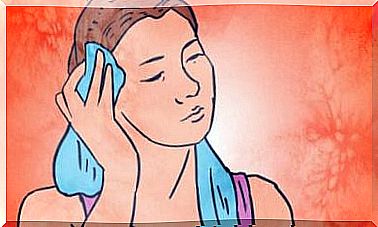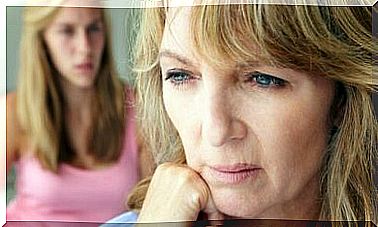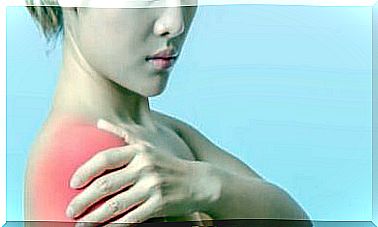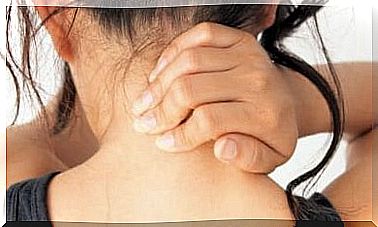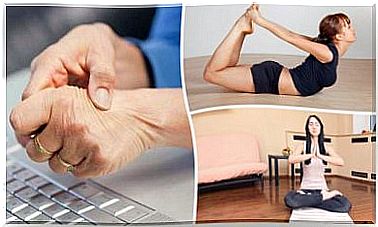Anxiety Upon Waking Up: Why Does It Occur And How Can It Be Relieved?
We have all experienced anxiety at some point in our lives – it is a normal, adaptive reaction. However, if the anxiety symptoms present themselves upon awakening, it may be a more serious problem.
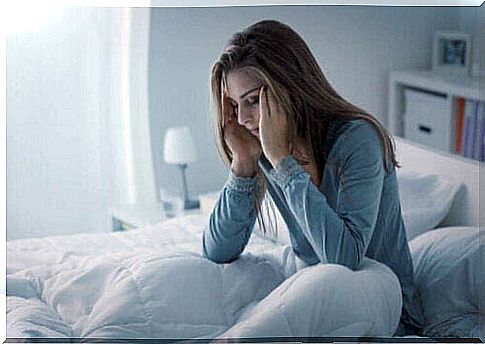
Awakening anxiety is the experience of a series of unpleasant physical and mental symptoms immediately after getting up. It occurs particularly in the morning.
If these reactions are prolonged in time, they end up negatively affecting the well-being of the person. It is therefore important to know its causes and know how to treat it.
What is anxiety?
According to the American Psychological Association, anxiety is an emotion characterized by somatic symptoms of tension. These are felt when the person anticipates imminent danger, disaster or misfortune.
It is one of the most common emotional states: it is used to activate the defensive actions of the body. A certain degree of anxiety is even desirable in order to cope optimally with the demands of daily life. It would be like a stimulus needed to progress and solve problems.
However, this emotion becomes pathological when it exceeds a certain intensity or loses its adaptive function. In these cases, it brings, as a consequence, a significant discomfort in the person, the symptoms of which affect the physical and mental well-being.
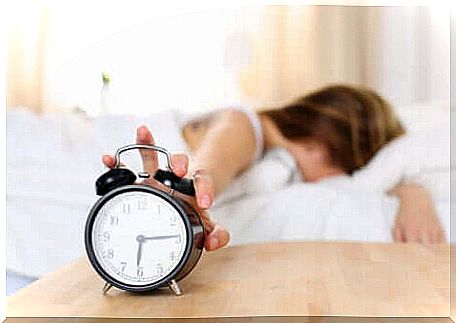
Anxiety and fear
Anxiety and fear have similar manifestations: in both we find thoughts of danger, feelings of apprehension, physiological reactions and motor responses. This is why we are used to confusing them.
However, the difference between these two reactions is that fear is triggered in the presence of dangerous stimuli, such as being in front of a wild animal. Anxiety, on the other hand, arises with the anticipation of future threats, which are indefinable and unpredictable.
Symptoms of anxiety upon waking up
Not all people have the same anxiety symptoms when they wake up. The amount and intensity will depend on the biological and psychological predispositions of the person. We can classify them according to physical, psychological, behavioral and cognitive signs.
Physical manifestations of anxiety upon awakening
Here we can mention the cardiac signs, like tachycardia, palpitations and tightness in the chest. This is usually accompanied by a feeling of suffocation and heavy sweating. At the same time, there is a combination of tremors and tingling in the limbs.
Digestive discomforts are quite common. There may be nausea and vomiting as well as point pain at the entrance to the stomach or epigastrium which is related to heartburn and gastroesophageal reflux disease.
Psychological manifestations
Among the psychological symptoms of anxiety upon waking up, we can mention the following:
- Sensation of danger or threat in the face of something that cannot be described.
- Feeling of strangeness, also known as depersonalization.
- Fear of dying: In its lightest forms, it is a fear of losing control of the situation and of life.
- Difficulties in making decisions.
Behavioral manifestations
Motor anxiety and difficulty staying calm are common symptoms of anxiety upon waking up, which appear as soon as a person gets up. This may be accompanied by facial expression with a rigid posture and tension in the mandible, resulting in bruxism.
Cognitive manifestations
Among the cognitive manifestations of anxiety upon waking, we find difficulty in focusing attention and concentrating during the early hours of the morning. This is related to the intensity of the preoccupation with which one starts the day, as well as the flow of negative thoughts.
Anxious people increase their doubts and their feeling of confusion. As soon as they get up, they misinterpret what is going on, whether in their intimate surroundings or through the news they learn.
Causes of anxiety upon waking up
Awakening anxiety can be due to many factors, among which we can highlight the biological, psychological and social aspects. It is important to note that the reasons that lead to feeling anxiety vary from person to person. The most common causes, however, are:
- Biological: Genetics play an important role in anxiety. The more genetic predispositions we have, the more likely we are to suffer from anxiety attacks. Usually these people have a family history with this condition.
- Psychosocial factors: the experience of stressful situations (professional, interpersonal, socio-economic problems) is generally the element which triggers these anxious experiences. In these cases, the person’s tools of confrontation are not sufficient to deal with the circumstances.
- Traumatic experiences: Experiencing traumatic events, such as serious accidents, natural disasters, attacks or acts of torture causes biological changes in the brain which are linked to severe symptoms of anxiety.
- Dream activity: Another motive that causes anxiety upon waking up is dreams with distressing content or nightmares. In these cases, the dreaming person feels the dangers are real, and when they wake up, they have difficulty discerning the dream from reality. After a dream, and not necessarily a nightmare, the person may wonder for a long time whether they are still asleep or awake.
How to relieve anxiety when you wake up?
Depending on the intensity and frequency of anxiety episodes upon awakening, psychotherapeutic intervention may be relevant. It is indeed likely that the person suffers from a disorder whose most effective treatment is none other than psychotherapy and, in the most severe cases, medication.
Muscle relaxation techniques upon awakening
Performing muscle-relaxing exercises will help decrease the incidence of disturbing physical sensations which, in turn, will reinforce negative thoughts. With practice, the physical effects of anxiety can be prevented with these techniques.
Replace chest breathing with abdominal breathing
Shallow and chest breathing can produce hyperventilation, which causes physical symptoms related to anxiety. Here we can mention dizziness, palpitations and the feeling of suffocation.
On the other hand, when the person is relaxed, they breathe more deeply and from the abdomen. If we change the way we do it (from chest to abdomen), we can use breathing as an instrument to control anxiety.
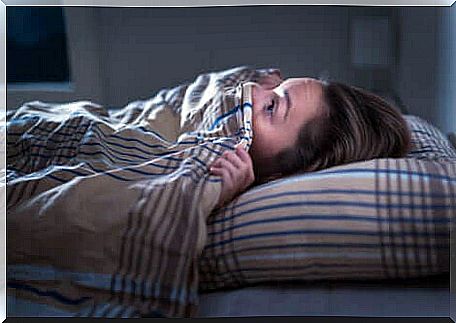
Practice yoga and meditation
Yoga is one of the most relaxing activities. In addition, it provides tools to establish unity between mind and body. This will involve greater control of the physical manifestations of anxiety.
A good way to practice muscle relaxation is to hold the body in certain flexed positions for a while and then release it.
On the other hand, meditation is an activity that allows you to release thoughts related to the past and the future, which leads the person to focus on the here and now. It therefore contributes to greater control of the mind and helps to avoid negative thoughts.
Avoiding alcohol and coffee consumption
There are different substances that promote the onset of anxiety manifestations, such as alcohol and caffeine. Decreasing their consumption will relieve anxiety upon waking up.
The problem of anxiety upon waking up can be treated
Even though it is overwhelming for those who suffer from it, anxiety upon waking up can be treated, either with a psychotherapeutic approach or with “homemade” measures. You can adapt your routine to have time to meditate and regulate your nighttime schedules to promote quiet rest.
If you have any doubts, consult a professional. In the medium term, anxiety damages organs and complicates social relationships, which has repercussions in different areas, from the work environment to the family environment. Its effects will be less if we quickly apply control methods.
